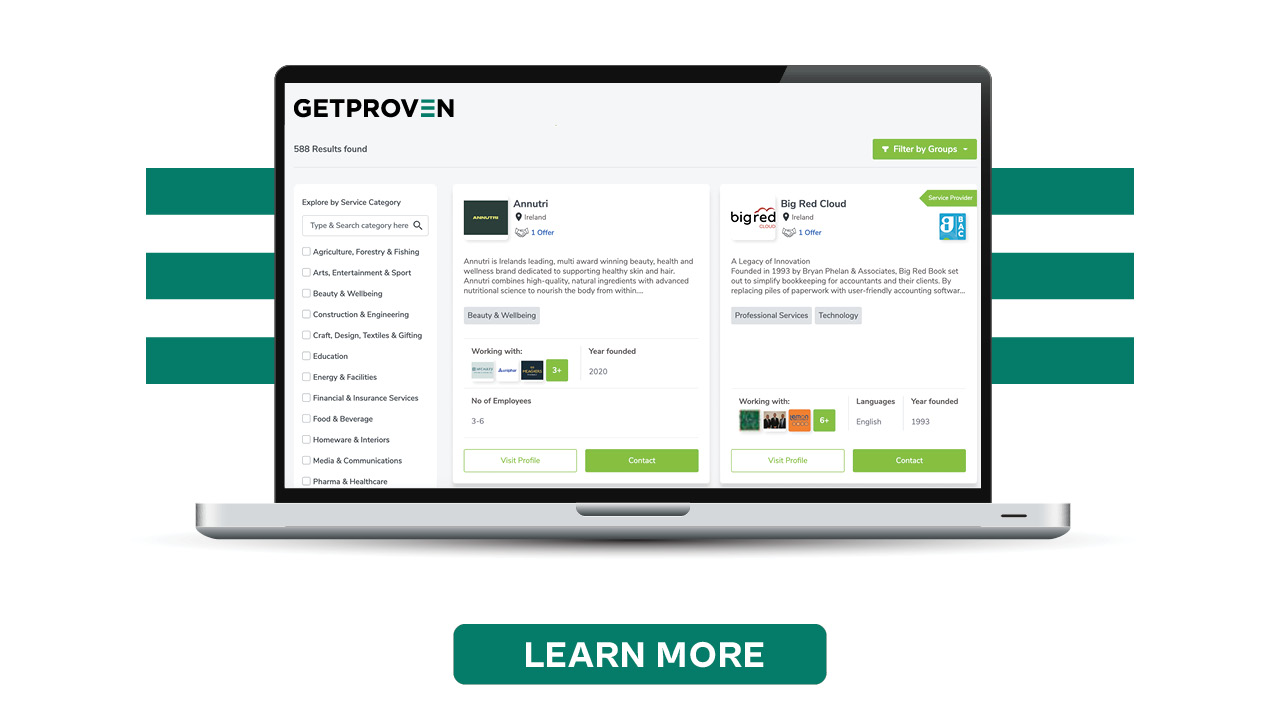
5 Proven Ways VC Firms Add Value to Portfolio Companies
.jpg)
The venture capital landscape has fundamentally changed. In the United States alone, there are over 3,400 venture capital firms competing for deals. With this level of competition, simply writing a check is no longer enough.
Founders today expect "value-add investors", meaning they want partners who bring more than capital and actively support their growth.
Startup survival is brutally difficult. About 9 out of 10 startups fail. Even with funding, success isn’t guaranteed: research shows that 25–30% of VC-backed companies still fail despite capital support.
The difference? Evidence suggests that startups receiving meaningful post-investment support — strategic guidance, networks, and operational help — perform better and survive longer. It’s no surprise that today’s founders increasingly prefer to partner with venture capital firms that act as growth partners, not just check writers.
In a market where valuations have tightened and deal flow is more competitive than ever, venture capital funds that add value through hands-on support, operational guidance, and network access are winning the best deals and generating better returns.
So how do the best VC firms add value beyond the check? Here are 5 proven practices that drive portfolio company performance and help early-stage companies succeed.

1. Helping Portfolio Companies Win the Talent War
For most early-stage companies, hiring is the single biggest challenge. Research shows 61% of recruitments are considered difficult, and 24% of companies rank finding the right person as their top priority. Without top talent, even the strongest business models struggle.
How Venture Capitalists Add Value in Hiring
- Leveraging networks: Strong fund team and investment team members often maintain databases of vetted candidates for critical functions (CTO, VP Sales, Heads of Growth).
- Employer branding: VCs help founders articulate equity stories, strengthen culture, and build brand recognition to attract and retain the best talent.
- Process optimization: Sharing pipeline processes, interview frameworks, and closing strategies that many founders haven’t yet mastered.
- Compensation benchmarking: Providing real-time data to ensure offers are competitive without exhausting the limited runway.
What's The Expected Impact on Portfolio Company Performance?
Portfolio companies that receive talent acquisition support from their VCs reduce time-to-hire by 40% and improve executive acceptance rates by 60%. That’s a significant value in the post-investment process, where every month of delayed hiring can burn 15–20% of runway.

2. Delivering Strategic Support Mentorship & Deep Expertise
The best venture capitalists do much more than provide capital. They offer strategic support that’s grounded in industry experience and deep expertise.
This post-investment support typically includes:
- Operational guidance around product development and go-to-market strategies.
- Industry-specific expertise that helps founders overcome potential hurdles and expand into new markets.
- Playbooks for sales, pricing, and customer acquisition.
- Crisis management when founders request support during churn, competitive threats, or internal team challenges.
Example in Practice
Take a B2B SaaS startup that's great at acquiring new customers but losing them within a month. A hands-off investor might wait for a quarterly investor update; a value-adding firm steps in immediately, helping design retention frameworks and account expansion strategies.
What's The Measured Impact?
Startups receiving operational mentorship from their VCs see 35% better growth and are 2.5× more likely to hit their board-approved milestones.
This is the difference between simply writing a check and post-investment support that creates lasting value.
3. Staying Available & Providing Ongoing Portfolio Support
One of the most common founder frustrations is that some investors disappear after the check clears. Larger funds often juggle dozens of companies at once, making it harder to give each startup hands-on attention.
Smaller or more focused funds may have more capacity for engagement, but that doesn't automatically mean they'll do a better job. Fund size alone isn’t the issue.
The real differentiator is whether a venture capital firm builds systems and habits for consistent, proactive support. Founders value open and transparent communication and knowing their investors will be available when support needs arise.
Best Practices for VC Availability
- Weekly pulse checks rather than relying only on board meetings.
- Transparent communication with real-time visibility into performance metrics.
- Proactive outreach when portfolio companies request support or when new opportunities emerge.
- Fast response times (24–48 hours) when founders face urgent decisions.
The Key Insight
When VC firms stay reliably available, portfolio companies perform better. Research shows they experience 45% lower failure rates and recover 60% faster from setbacks.
In other words: being present and engaged isn’t optional, it’s one of the clearest ways firms add significant value beyond capital.
4. Unlocking Growth Through Network Access
For early-stage companies, access often matters as much as capital. Founders need introductions to potential customers, industry experts, and new investors, but breaking into those circles alone is difficult. This is where venture capitalists add significant value. A well-connected VC firm can shorten sales cycles, accelerate fundraising, and open doors that would otherwise take years to unlock.
High-Value Introductions Typically Include
- Customer connections: Warm intros that help startups reach potential customers and land their first major contracts.
- Subsequent funding rounds: Access to co-investors and new investors, which can cut months off the fundraising process.
- Strategic partnerships: Distribution deals, integrations, or even acquisition pathways.
- Industry experts: Connections to advisors, interim executives, or board members with deep expertise.
- Essential service providers: Vetted legal, finance, PR, and recruiting firms who understand startup realities.
Community Building
Top funds also invest in community building through hosting founder events, cross-portfolio workshops, and peer-learning sessions. This amplifies the power of individual introductions by creating an ecosystem where portfolio companies support each other and share resources.

5. Streamlining Operations with Vendor Management Platforms
There's a hidden burden for early stage companies that many firms overlook. Founders at the seed stage and beyond are often stretched thin. They spend countless hours sourcing vendors, negotiating contracts, and trying to manage multiple service providers from legal and HR, to finance, PR, and so much more. This operational drag can waste 20–30% of scarce resources and distract leadership from growth priorities.
How VC Firms Add Value
Reduce this burden by giving startups structured, scalable ways to manage vendors through:
- Pre-negotiated enterprise rates that provide immediate cost savings.
- Curated provider lists with vetted vendors who understand high-growth companies.
- Standardized procurement & compliance frameworks that simplify onboarding and reduce risk.
- Integrated reporting that improves transparency in investor updates and portfolio monitoring.
The ROI of Post-Investment Support
When venture capital funds provide vendor management solutions, portfolio companies perform better operationally: they reduce expenses by 15–25% while freeing founders to focus on building product, reaching potential customers, and improving brand recognition. For a startup burning $100K a month, that’s $15–25K saved — effectively adding 2–3 months of runway.
Explore our savings calculator to get a glimpse of how much your portocs could be saving this year. Proven calculator here.
The Key Insight
Helping companies cut costs and reclaim time isn’t just a perk, it’s post-investment strategy that directly improves portfolio company performance. By offering solutions like Proven, VC firms add tangible, scalable value that benefits both founders and investors.

FAQs
Q. Do all venture capitalists provide the same level of support?
A. No. Some VC firms are hands-off, while value-add investors provide structured post-investment support across talent, networks, and strategy.
Q. What are examples of portfolio support requests?
Common requests include help with talent acquisition, introductions to potential customers, support entering new markets, and operational guidance during scaling.
Q. How do value-add VCs influence exit strategies?
By improving brand recognition, deal flow, and portfolio company performance, value-add investors increase the chances of successful exits and better deal flow for the fund.
Conclusion
In today’s market, providing capital is table stakes. What truly sets great venture capital firms apart is their ability to add value after the check clears. The best firms help founders hire top talent, provide strategic and operational guidance, stay consistently engaged, open doors to customers and investors, and improve efficiency with scalable vendor support.
The result is the same every time: stronger companies, better deal flow, and superior returns for venture capital funds.
Ready to see where your firm stands? Download the VC Value-Add Checklist and benchmark your post-investment process against the best in the industry.








.png)





